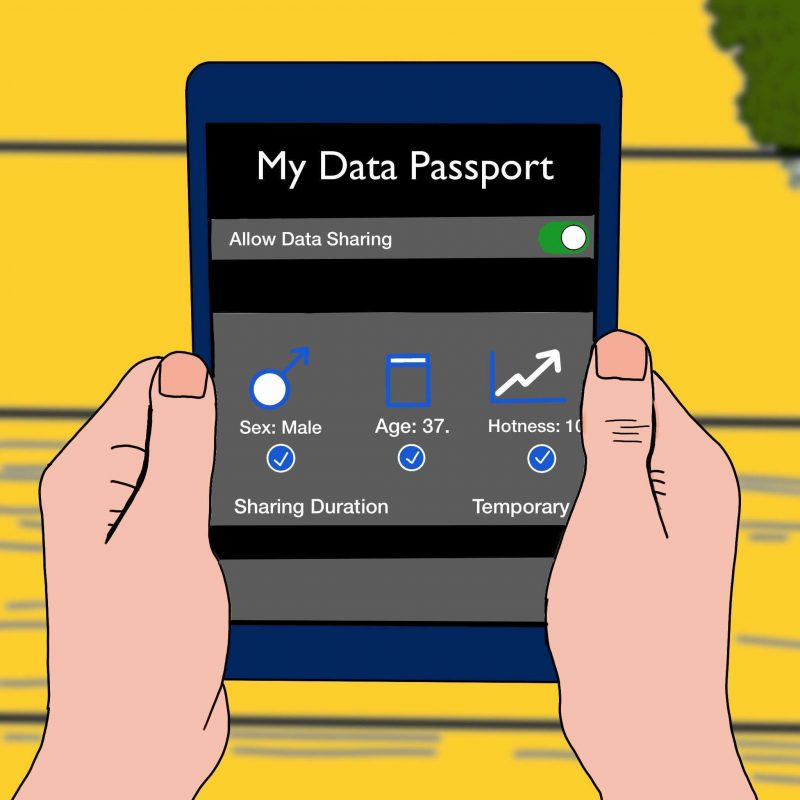Brands need to pull back the curtain on data in order to gain consumer trust
The formulas that make up the internet’s algorithms are just as prized as they are secretive. But Versa futurist Tomas Haffenden argues those who hold the keys to the digital kingdoms need to be more open if they want consumers to do likewise.
It is hard not to notice the role algorithms play in defining our online experiences. Whether it’s the surprise and delight of a good Netflix recommendation or the irritation of misguided targeted ads, our user-data is the fuel that powers these invisible machines. But the personal data landscape is starting to change.
Increasing user awareness combined with legislative changes like General Data Protection Regulation (GDPR) is empowering consumers to play a more active role in how and what they are willing to share. This power shift is going to require brands to change the forgiveness over permission attitude to data use and actively engage consumers if they want to keep them.
So what can brands do to persuade consumers to share their precious first-party data, and how can that trust be maintained to develop an ongoing and mutually beneficial relationship?

After years of subjecting consumers to a rubbish version of online cat and mouse, the first step for brands needs to be transparency. In place of speculative assumptions based on cookies, search terms and previous purchases, brands will need to pull back the data-curtain and share the data points that are being used to define the consumer.
Sharing this information provides brands with an opportunity to build trust as the consumer gains greater insight and understanding of how and what is being used to fill their feeds. This level of sharing is currently unheard of, but will soon be required to meet growing consumer expectations.
A further knock-on effect is a new sense of shared responsibility or data-partnership. By revealing what is being used to feed the machine, a consumer now plays a more active role in the monitoring and, more importantly for brands the maintenance of this data.
Up to date, relevant data provides a more clearly understood benefit to consumers often frustrated by an anything less than perfect algorithm. Spotify and Netflix already lead the way in terms of personalised discovery. Still, both have a distinct advantage over e-commerce and retail due to the volume of data consumers are already willing to share… or at least allow to be collected.
It is instilling a willingness to share that is the North Star for this new approach to shared management of personal data. Transparency of the data that is being collected is undoubtedly a factor, but there is something else far more fundamental that consumers will want before they are willing to share, namely; editing rights.
Our online life is consumed by a careful curation of what and how we present ourselves in our various online channels. From corporate-you on LinkedIn, flawless-you on Insta to the deplorable version of yourself you save for the boys/girls in private channels like WhatsApp, complete control of the narrative is an expected norm.
Regardless of channel, it is the consumer’s ability to edit that is at the core of a willingness to share and instill the trust needed to do so. An ability to edit brings with it the confidence to experiment with the information being shared, safe in the knowledge that the reset button is not far away.
For brands committed to this new approach providing an ability to easily edit or toggle some data points on and off will fundamentally change the conversations, they can have with their audience. These conversations will be two-way and provide the bases for far deeper and long-lasting relationships, where brand and consumer are meeting as equals.

Facilitating these two-way conversations requires a more refined and connected conversational strategy underpinned by automated channels like chat. These automated conversations not only allow users to efficiently access and edit their information, but also let brands provide consistency of experience across the social landscape and importantly, in the customer’s preferred channel.
Whether brands are ready or not, the personal data landscape is about to see radical change. Legislation obligation and changing consumer expectation has shone a bright light on traditional outdated attitudes to the collection, ownership and visibility of the consumer data.
For brands brave enough to pull back the data-curtain and lead the way with a more transparent and co-dependent approach to data, the potential spoils are immense. A shifted responsibility of data authenticity to the consumer will provide untold access and allow for new levels of personalised experience.
The key ingredient for brands to consider is how best to develop and deliver automated conversations capable of blending functional service with an engaging conversational style. Finding agency partners able to provide on both the technical and creative elements required is the only way to instil the required trust and elicit the all-important willingness to share.

Tomas Haffenden is a futurist at Versa.

